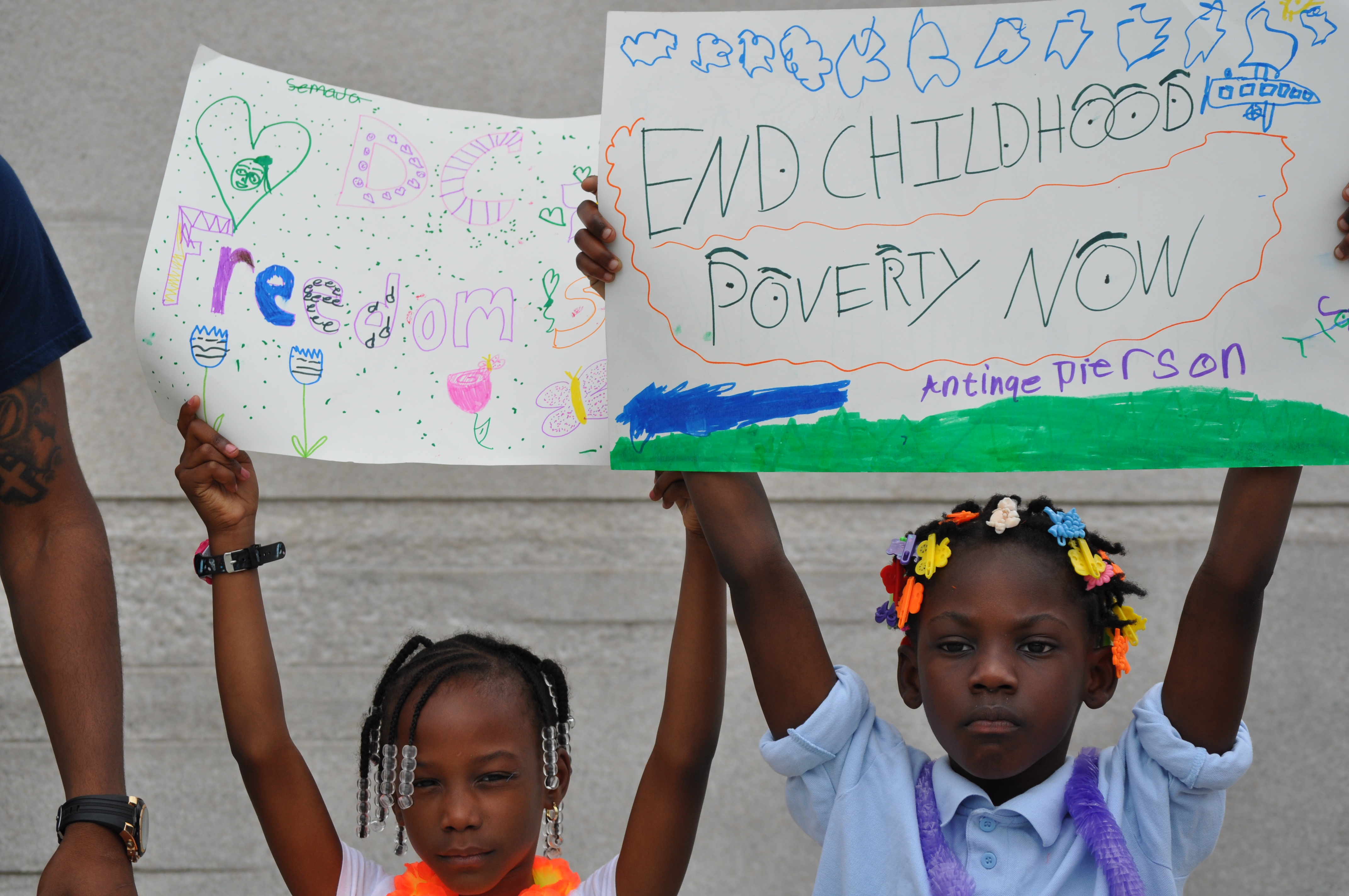The Problem
To succeed, children need quality and healthy homes, generous income and wealth support, quality health care, ample nutritious food, good schools, safe neighborhoods, and access to resources and opportunities that enable them to reach their full potential. Our children are striving, but too often the decks are stacked against them and the basic building blocks for success are out of reach.
Every child deserves to live in a world where they can learn, thrive, and live up to their fullest potential. The only way to do so is to confront our current systems and institutional racism and advance change for all of our communities, especially our Black, Latinx, and indigenous children and families.
About 1 in 7 children—nearly 10.5 million—were poor in 2019. Almost half of these children lived in extreme poverty at less than half the poverty level. Children of color—who make up a majority of all children and our nation’s future—are at greatest risk. Seventy-one percent of poor children were children of color. More than 1 in 4 Black and 1 in 5 Hispanic and Indigenous children were poor compared with 1 in 12 white children. Across all racial and ethnic groups, the youngest children were the poorest. Nearly 1 in 6 children under 6 lived in poverty during their years of greatest brain development.
Poverty and income inequality leave children without reliable access to nutritious food, healthy homes, quality health care, and other resources to support their healthy development and later success.
- More than 1 in 7 children in America experienced food insecurity and did not have enough to eat in 2019.
- Many did not even have a safe and stable place to sleep. More than 1.5 million school-aged children experienced homelessless during the 2017-2018 school year, living in shelters, transitional housing or on the streets.
- Children in poverty were also more likely to be uninsured.
Denying millions of children basic necessities like food, housing and healthcare can have devastating and lasting consequences. Child poverty creates gaps in cognitive skills for young children, jeopardizes children’s health and ability to learn, and fuels an intergenerational cycle of poverty. Child poverty is too costly for our children and nation—and it is neither necessary nor morally defensible.
Our Vision
We envision an America where we fully invest in our communities, particularly communities of color, so that no child lives in poverty, where racial justice is realized and all children have the opportunities they need to reach their full potential. We believe that we must tear down the systemic and institutional racism and discrimination embedded in our institutions and our policies to fully realize this dream. As a country, we have the resources to end child poverty now and must create the will to do so. We cannot afford to wait. The future of our children—and our nation—depends on it.

The Solution
We fight to end child poverty and ensure all families have resources they need to thrive and flourish by expanding, improving, and advancing new federal programs and policies that help our communities. Ending child poverty will take a multi-pronged approach. To end child poverty now, we must:
- Ensure Children’s Basic Needs are Met: We must aggressively increase investments in housing assistance through vouchers and affordable construction for families struggling to make ends meet and those experiencing homelessness. rs, so they all can afford a safe and stable home to raise their children. Additionally, we must strengthen Temporary Assistance for Needy Families (TANF) to fight for racial justice and help families afford basic necessities like meals, a trip to the laundromat, and diapers. We must also increase the value of Supplemental Nutrition Assistance Program (SNAP) monthly benefit, enact universal school meals for all, and greatly expand summer and after school meals b, so children are re healthy and ready to learn.
- Enact a robust, permanent child allowance and baby bonds: We must guarantee a minimum income and baby bonds for every child to ensure they have the opportunity to thrive and invest in their life. Regular, meaningful assistance to families will cut poverty deeply, promote racial equity and justice, and serve as a foundation for a more equitable and inclusive social support system that gives children cash now and for a brighter future tomorrow (baby bonds).
- Ensure a living wage and support for families and their children: We must increase wages to at least $15 an hour because people deserve to earn a living with time for a life and caring for their family. That means counting caregiving as work, guaranteeing all workers can meet their own medical needs through comprehensive paid leave, and enacting a national, permanent subsidized jobs program for young adults.
- Ensure more children and youth have the support they need from the start: : To reduce child poverty long term, children also need access to affordable, comprehensive physical and behavioral health care, affordable high-quality early development and learning opportunities, including child care, robust Head Start and early Head Start, high performing schools and colleges, and families and neighborhoods free from violence.

